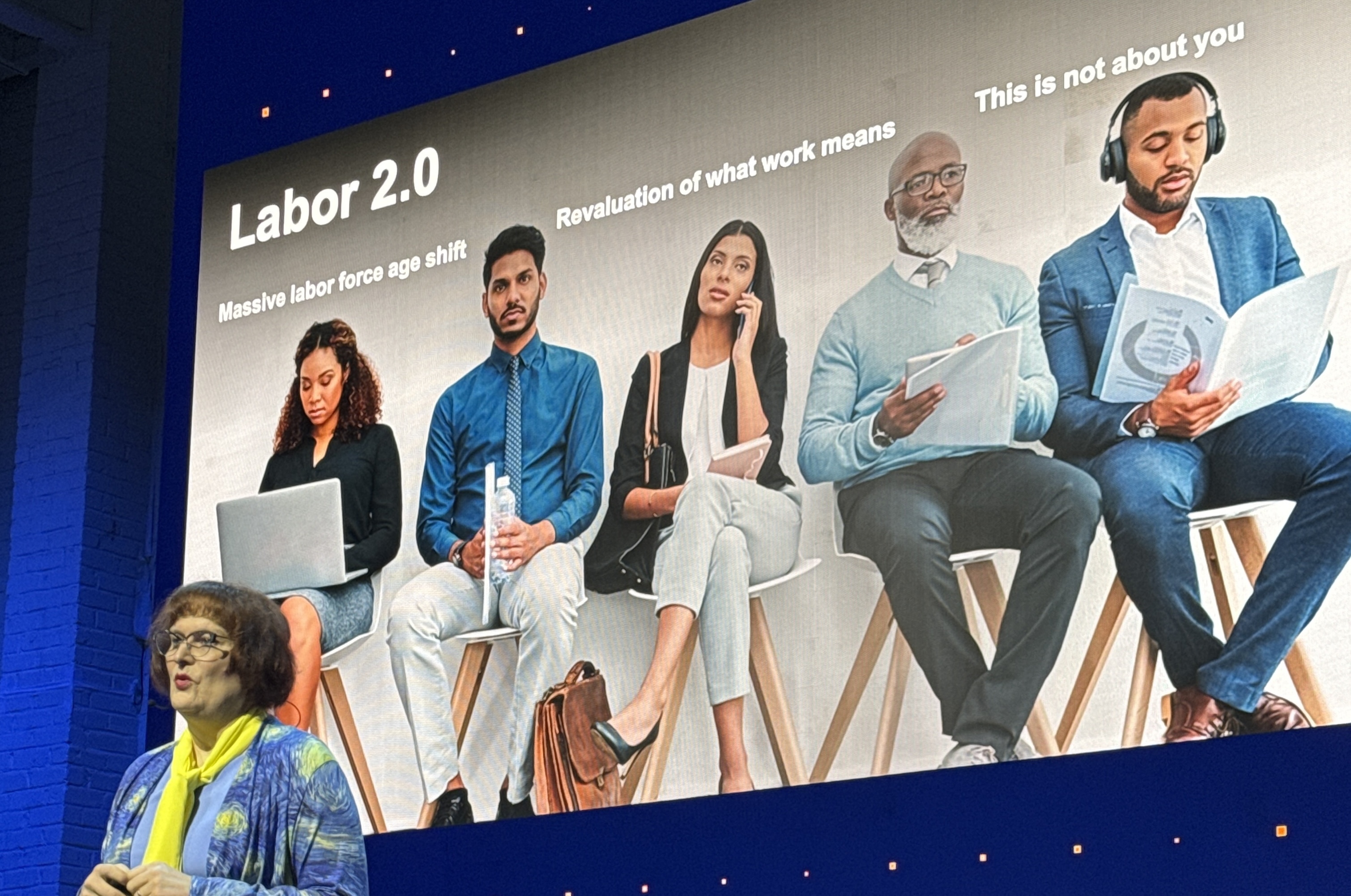
“Start now,” Dr. Elouise Epstein has urged procurement professionals – start before it becomes too tempting to overcomplicate your AI solutions.
At DPW New York this June, procurement analyst Dr. Elouise Epstein took to the stage with a message that the AI revolution is not a distant concept. It’s already here, and it’s changing the way we work. Her advice to procurement leaders was that they must stop theorising and start experimenting. Now. But how?
The audience at DPW was already enthusiastic regarding AI, rather than skeptical. When Epstein asked who thought generative AI was overhyped, not a single hand went up. Everyone, it seemed, agreed: generative AI is transformative. But amidst the buzz and jargon, what matters most, Epstein argued, is how we engage with the technology and a willingness to get our hands dirty.
Cutting Through the Noise
Epstein opened with a bold critique of the industry’s current AI discourse, particularly on LinkedIn. She called out the corporate fluff and nonsense, earning a huge cheer from the audience for stressing:
“PLEASE STOP POSTING ABOUT AGENTIC AI ON LINKEDIN.”
It was a provocation rooted in frustration. Agentic AI—autonomous systems designed with goals and context awareness—is an exciting frontier, but it’s being drowned in buzzwords and hype. Instead of getting swept up in speculative posts about replacing entire job functions, Epstein urges professionals to ground themselves in real use cases and hands-on exploration.
From Hype to Action
What makes AI powerful, she explained, is its ability to work autonomously within defined boundaries. Think of it as enabling all of your employees to manage a team of 20 virtual interns. That’s the future Epstein envisions: not every employee being replaced by AI, but every employee becoming a manager of intelligent agents.
To get there, we need to understand the fundamentals, starting with how AI systems remember and respond to us:
- Long-term memory: the foundational knowledge AI models are trained on—broad, general internet data.
- Short-term memory: the specific context you provide as a user—e.g., “I’m a category manager working on supplier onboarding.”
This kind of contextual priming is critical when writing effective prompts. Epstein outlined the anatomy of a good prompt many of us are somewhat familiar with now: set a persona, establish tone of voice, clarify the objective, and define any constraints. If you’re struggling to come up with a good prompt – consider asking your AI to create its own prompt for you.
No Code, No Problem
Perhaps the most compelling aspect of Epstein’s session was her personal story of building her own AI agent to read her Gmail and manage her Google Calendar. She was candid with the audience, arguing she is no software engineer. But with the help of natural language interfaces and a willingness to tinker, she made it work – as could anyone in the audience.
You don’t need to be technical to start using AI tools. You just need curiosity, and perhaps a friend or colleague to share experiments with, ask questions, and keep innovating with.
Focus on Personal Productivity First
Epstein’s core message for procurement professionals was simple: start with yourself. Before overhauling processes or rolling out enterprise-wide AI initiatives, look at your own day-to-day tasks. Calendar automation. Email summarisation. Note-taking. Document analysis. There’s a wealth of low-hanging fruit, especially for time-strapped professionals in procurement.
Start now, she urged, because the temptation will be to over-complicate things later. The proliferation of agents, if left unchecked, could become a new source of dependency and inefficiency. Red flags are already emerging in some corporate AI initiatives.

The Bigger Picture: A Workforce Shift
Zooming out, Epstein positioned this moment as part of the biggest labor transformation since the end of World War II. As Baby Boomers retire and Gen Z enters the workforce in greater numbers, a generational shift is underway, alongside new expectations about work, tools, and autonomy.
In this new landscape, the barriers to entry are low. The technical knowledge once required to build tools or automate workflows is no longer a gatekeeper. Success in the AI era, Epstein said, will come down to three things:
- Hard work
- Creativity
- Motivation
For procurement leaders, this is an opportunity. Not just to adopt AI, but to lead by example and champion experimentation, empower teams to explore, and rethink how procurement delivers value.
Epstein’s session at DPW served as a rallying cry and a reality check: the people who get the most out of AI will be the ones who get their hands dirty now. Stop posting (or reading) buzzwords on LinkedIn, and start doing. The future of AI in procurement isn’t theoretical, rather it is personal, practical, and should have already started within your organization.
Find out more from Nibble’s personal experience of AI Negotiation in procurement here.
Interested in Nibble?
